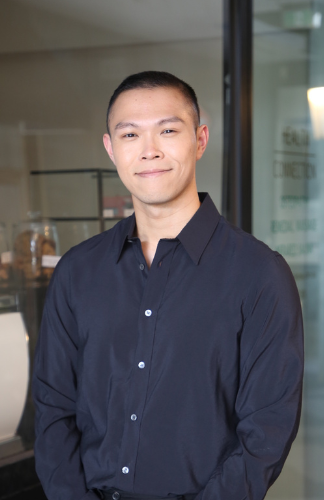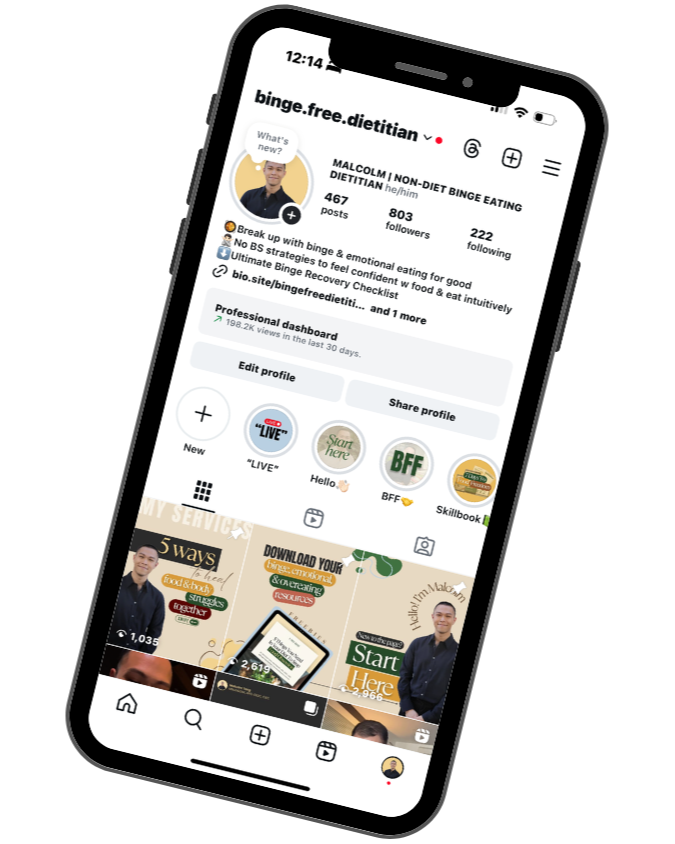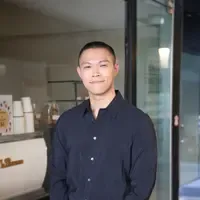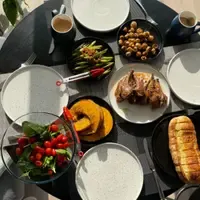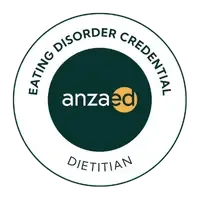Still Struggling with Binge Eating After Therapy? Here's Why
Aug 06, 2025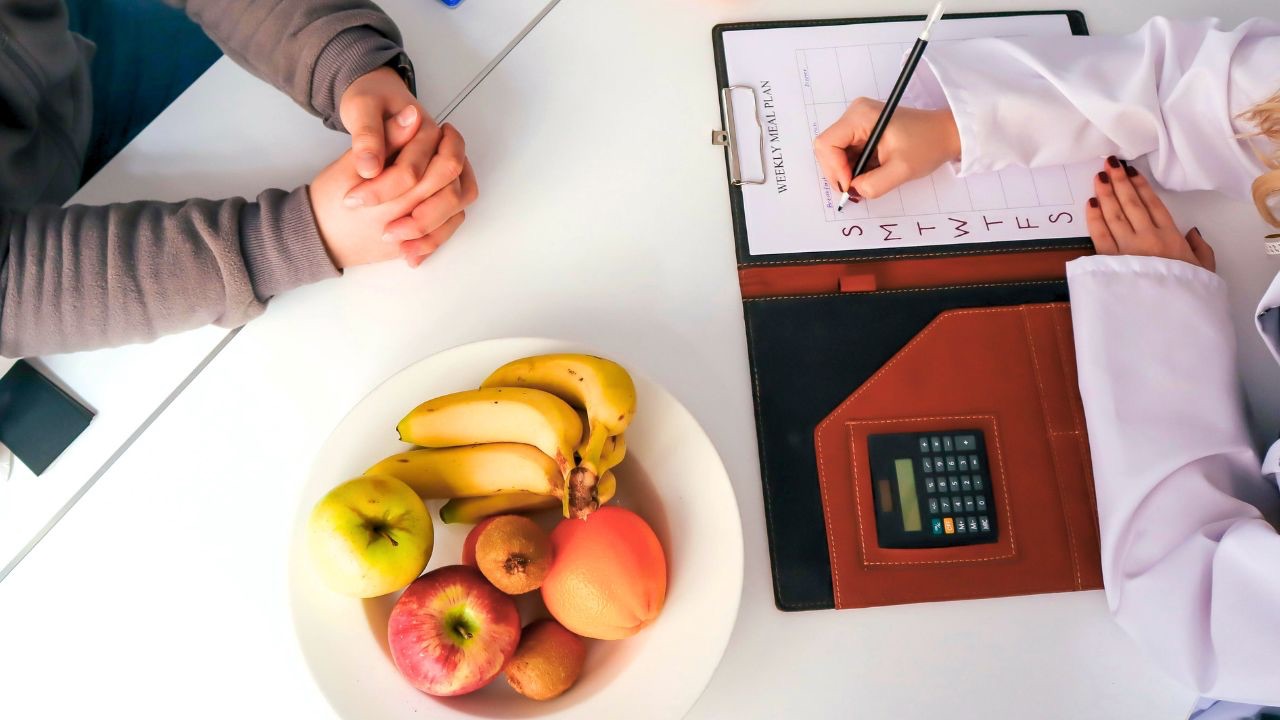
You’ve done everything “right.” You saw a dietitian. You tried therapy. You followed the advice — eat balanced meals, journal your emotions, avoid sugar, practice mindfulness.
And maybe, for a while, it helped.
But food still feels like a constant battle.
You still eat when you’re not hungry.
Still feel guilty after a “bad” food day.
Still swing between being “good” and feeling out of control.
And you’re left wondering:
“What’s wrong with me?”
Here’s what I wish more people were told:
There is nothing wrong with you.
But you might be getting support that isn’t quite the right fit.
Most people don’t start by looking for specialists in binge eating.
They go to:
-
A general dietitian — who talks about balanced meals and healthy swaps
-
A therapist — who helps with emotions, but doesn’t really “get” the food part
They’re not wrong — just not trained for what you're really dealing with:
-
Feeling out of control around food — not from lack of willpower, but because food became your way to cope, survive, or soothe
-
Obsessing over every bite, stuck in cycles of guilt, rules, and “starting over”
-
Drained from years of dieting, perfectionism, or body image struggles
So you’re told to:
-
“Eat more regularly”
-
“Go for a walk”
-
“Be more mindful”
-
“Avoid trigger foods”
And while it sounds helpful, when you’re on the couch, overwhelmed, reaching for food and fighting back tears —
“just eat more protein” doesn’t touch it.
Because this isn’t just about food. It’s about your relationship with food.
And that needs a different kind of care.
Why It Doesn’t Work
Here’s the truth: Binge eating, emotional eating, and food obsession are often just the tip of the iceberg.
Underneath, there’s usually a lot more going on:
- Years of dieting and food rules that disconnected you from your body
- Unmet emotional needs — comfort, control, safety — that got channelled into eating
- A nervous system stuck in survival mode, where food becomes the fastest way to self-soothe
- A history of shame around eating, weight, or body image that you’ve carried silently for years
and many more…
Generic advice can’t touch that.
Neither can a one-size-fits-all meal plan.
It’s like trying to stop a leaking roof with duct tape — it might hold for a day, but the cracks keep widening underneath. Because the real issue isn’t on the surface. It’s what’s beneath — the wiring, the foundation, the pressure that’s been building over time until food became your only release.
You need someone who doesn’t just treat the symptoms — but understands the why behind them.
Healing Starts With Being Seen
Even with all the research and evidence-based approaches out there — and even if you’re working with a specialist practitioner — it still might not.
Why?
Because healing isn’t just about what you do — it’s about who you do it with.
In fact, research shows that the strongest predictor of success in therapy isn’t the method used — it’s the quality of the therapeutic relationship.
In other words: Do you feel safe, supported, and truly seen by the person guiding you?
You might be surprised by how healing it can feel to be fully understood — by someone who’s helped hundreds through the same struggles, and yet still sees you as unique.
In this space, you’re not a list of symptoms. You’re not a project to be fixed.
You're a whole person with a story that makes sense — and a body that’s been trying to protect you in the only way it knew how.
What Is It Like to Work With A Specialist That Clicks
When you work with a specialist dietitian, it often doesn’t feel like working with a typical dietitian.
We don’t start with food rules or goals.
We start with you — your story, your fears, your patterns, even the parts of you that want to give up.
Because we know what it’s like to feel stuck, and we know how important it is to understand the why before jumping into the what.
When the advice finally matches your lived experience...
When you feel safe enough to let go of shame...
When the plan is made for you — not for the “average client”...
That’s when things begin to shift.
We don’t just ask:”What do you usually eat?”
We ask:
- “What did food mean to you growing up?”
- “When you’re seeking comfort, which foods do you turn to?”
- “How do you feel while eating — what thoughts show up in your mind?”
- “What does being ‘good’ with food mean to you? And what makes a food feel ‘good’ or ‘clean’?”
We don’t just say: “let’s try xyz the next time you feel anxious”
We ask:
- “If I could zoom out and look at your life like a movie, how do I know you are being anxious?”
- “What does your inner voice say to you when you feel anxious?”
- “What about this situation makes your body respond with anxiety?”
- “What feels more helpful for you in moments like this — grounding, distraction, or something else?”
We don’t say: “Just ignore what others say — you’re beautiful.”
We say:
- “You shared that losing weight feels like the only path to feel more comfortable in your body, and it makes so much sense. That’s what we’ve all been taught by pop culture and our family, and this has a lot of impact on your behaviours because you are a good learner and good kid. Would you like to explore that more together?”
- “You mentioned not liking your thigh - could we also pause and explore can how do your thigh serve you? I always feel like we can use a little bit of justice when we look at our bodies”
We don’t say: “You should eat 3 meals and 3 snacks - that helps you kickstart your recovery.”
We say:
- “Hunger and bingeing are like two ends of a pendulum. The more we swing into hunger, the more likely we swing back into overeating. That’s why eating more regularly — like 3 meals and 2–3 snacks — can be so helpful. What do you think about that idea?”
- “We don’t need to get it ‘perfect’ just yet, you mentioned that after work is hard, how would it feel to try intentionally adding an afternoon snacks just to see how your body respond?”
- “That’s a great start! What are some easy snacks we could add here? What could be getting in the way? And how can I support you to make this feel doable?”
We know that two people with binge eating can have completely different paths - one may be stuck in perfectionism and control. Another may be using food to cope with grief, or loneliness.
This work isn’t about cutting carbs or eating less. It’s about untangling years of conditioning, coping, and survival strategies — with compassion and care.
How to Find a Specialist Dietitian That’s the Right Fit for You
If you've decided that working with a specialist dietitian is the next step in your healing — amazing. That decision alone is a powerful move toward reclaiming your relationship with food.
But now you might be wondering: How do I actually find the right person?
Here are a few things to look for to make sure you’re getting support that’s aligned with what you truly need:
1. Check Their Qualifications & Specialised Training
If you struggle with binge, emotional and compulsive overeating, we recommend finding a dietitian with specialised training:
- Make sure they are registered/accredited dietitian recognise their local regulatory bodies as dietitian are trained to provide personalised nutrition therapy
- Credentials and trainings in eating disorders (for example Credentialed Eating Disorder Clinician (CEDC) or Certified Eating Disorder Specialist(CEDS))
- You can also look for additional training in HAES® (Health at Every Size), intuitive eating, trauma-informed care, body image counselling, somatic work or counselling
- Clear language around working with emotional eating, binge eating, or food-body relationship healing (not “weight loss”)
This kind of training shows they understand that food is more than fuel — and that your healing goes far deeper than what’s on your plate.
2. Explore Their Online Presence (If They Have One)
Many specialist dietitians share content online — through Instagram, blogs, podcasts, or email newsletters. Take some time to scroll through their posts and get a feel for how they speak and what they care about.
- Do they talk in a way that makes you feel safe, seen, or understood?
- Do their values and messages feel aligned with yours?
- Do they speak with compassion and nuance — or do they promote their approach with a set rigid rules; or labelling certain foods being ‘good’ or ‘bad’
This is a great way to do a subtle vibe check before even reaching out.
3. Book a Free Call (If Offered)
If you're unsure whether they’re the right fit — book a free call.
This isn’t a test or an interview. It’s simply a chance to talk, ask questions, and feel into the connection.
Here are some question you can ask them:
- What’s your approach to healing a disordered relationship with food?
- How do you support clients who feel stuck, overwhelmed, or resistant to change?
- I’ve tried xyz, how would you do differently?
- What kind of support do you offer between sessions? (assess if you need them)
- What would working together typically look like in the first few weeks/months?
- or ask further about their training, qualifications or experience
After the call, ask yourself:
- Do I feel safe opening up to this person?
- Do I feel judged, or do I feel understood?
- Did they listen — really listen to my struggles and give me responses that aligns with my value?
You deserve to work with someone who meets you where you are, sees your whole story, and honours the pace of your healing.
💡 Feeling Overwhelmed?
Here are a few trusted directories where you can find high-quality specialists:
🌏 International & Online
-
Intuitive Eating Certified Counselors 🔗 intuitiveeating.org/certified-counselors
Practitioners trained in the official Intuitive Eating approach -
EDRD Pro Directory🔗 edrdpro.com/eating-disorder-dietitian-directory
Non-diet, weight-inclusive dietitians who specialize in eating disorder recovery -
HAES® (Health At Every Size) Provider Listing 🔗 asdah.org/listing
Weight-inclusive health professionals (mostly US & Canada)
🇺🇸🇨🇦America & Canada
- National Eating Disorders Association (NEDA) 🔗 map.nationaleatingdisorders.org
Treatment locator for eating disorder professionals
🇦🇺 Australia & New Zealand
-
ANZAED (Australia & NZ Academy for Eating Disorders) 🔗 connected.anzaed.org.au
Find credentialed eating disorder practitioners
🇬🇧 United Kingdom
-
BEAT Eating Disorder Help Finder 🔗 helpfinder.beateatingdisorders.org.uk
Search for ED services and professionals in the UK
👋 Want to Check Out My Work?
If you're curious about my qualifications, experience, or approach, you can find more about me HERE or view my professional directories:
-
Dietitians Australia Profile 🔗 View Profile
-
ANZAED Credentialed Provider 🔗 View Listing
-
EDRD Pro Directory 🔗 View Profile
-
Certified Intuitive Eating Counselor 🔗 View Listing
📍If you’d like to learn more about how I work with clients, you can also check out my services page HERE.


